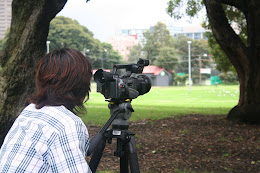Adam Smith
 1. Biography
1. Biography• June 5, 1723 (baptism) in Scotland – July 17, 1790 in Scotland
• Philosopher and political economist
• Key figure; Scottish Enlightenment in 18th Century
• Known as "The Father of Economics"
• Schools: Glasgow University and Balliol College of the University of Oxford
• No personal papers remained
• Never married, a close relationship with his mother
2. Main Ideas
● Laissez-faire
• Short for "laissez faire, laissez passer" in French, which meaning to let things alone, let them pass.
• Laissez-faire has since become the synonym for free market economics.
• The basis of this idea is that a good economic system on field could be created when the government has less interference.
● Books
The Theory of Moral Sentiments (1759)
• "Standards of ethical conduct that hold society together, with emphasis on the general harmony of human motives and activities under a beneficent Providence" (Chew 1996, para. 2).
• New liberalism.
• A social organisation is composed of the outcome of people's actions; it is not from people's intentions.
An Inquiry into the Nature and Causes of the Wealth of Nations (1776)
• "A vast and stinging critique of the crippling regulation of commerce and trade that was then current, it argued that if people were set free to better themselves, it would – 'as if by an invisible hand' - actually benefit the whole of society. The book influenced thought and politics profoundly, and was one of the foundations of the era of liberal free trade that dominated the Nineteenth Century" (Adam Smith Institute 2007, para. 6).
● Adam Smith Quote
On The Invisible Hand,
"It is not from the benevolence of the butcher, the brewer, or the baker, that we expect our dinner, but from their regard to their own interest. We address ourselves, not to their humanity but to their self-love, and never talk to them of our necessities but of their advantages" (Smith 1776, Book I, Chapter II).
 3. Social Context of Times
3. Social Context of Times• In the period known as The Enlightenment, Eighteenth-century Europe happened significant changes based on culture by religious problems such as weak faith to God.
• "The concept of a single, Europe-wide movement may of course be challenged in detail: it does reflect a cultural dominance of French thought" (Kids.Net.Au 2007, para. 7).
• Anti-slavery movement
"The growth of humanitarian feeling during the Age of Enlightenment in the 18th century, the spread of the ideas of Jean Jacques Rousseau and others, and the increase of democratic sentiment led to a growing attack on the slave trade. The French Revolution had a great effect not only in the spread of agitation for human rights but more directly..." (The Columbia Electronic Encyclopedia, para. 1).
• Interest in new ideas and awareness of world
• Emphasis on rights and liberty
4. Reception of Ideas
"In 1759 he published his The Theory of Moral Sentiments, embodying some of his Glasgow lectures. This work, which established Smith's reputation in his day, was concerned with how human communication depends on sympathy between agent and spectator (that is, the individual and other members of society)....He bases his explanation not, as the third Lord Shaftesbury and Hutcheson had done, on a special 'moral sense'; nor, as Hume did, on utility; but on sympathy" (Wikipedia 2007, para. 4).
5. Relevance of Ideas
• "The Wealth of Nations, one of the earliest attempts to systematically study the historical development of industry and commerce in Europe, as well as a sustained attack on the doctrines of mercantilism" (Wikipedia 2007, para. 1).
• The modern academic discipline of economics
• Free trade, capitalism, and libertarianism
• Help turn Europe into a free trade domain, for example, European Union.
• See also, Industrial Revolution
6. Strengths or Weaknesses
• If there is no government, would a social organisation be developed because it is influenced on Laissez-faire?
• On free market, is every country developing or developed?
• There was no "invisible hand" on Black Monday in United States.
• The rich-get-richer and the poor-get-poorer.
References
Adam Smith Institute 2007, 'Adam Smith', Adam Smith Institute, viewed 8 August 2007, <http://www.adamsmith.org/smith
Chew, R. 1996, 'Adam Smith', Lucidcafé, viewed 8 August 2007, <http://www.lucidcafe.com/library/96jun/smith.html>
Kids.Net.Au 2007, 'The Enlightenment', Kids.Net.Au, viewed 8 August 2007, <
Smith, A. 1759, The Theory of Moral Sentiments.
Smith, A. 1776, An Inquiry into the Nature and Causes of the Wealth of Nations.
The Columbia Electronic Encyclopedia 2007, 'The Antislavery Movement', 6th edn, The Columbia Electronic Encyclopedia, Columbia University Press, <http://www.infoplease.com/ce6/bus/A0861125.html>
Wikipedia 2007, 'Adam Smith', Wikipedia, viewed 8 August 2007, <


4 comments:
Wow all I can say is that you are a great writer! Where can I contact you if I want to hire you?
There are various [URL=http://www.northfacetriclimate.org/#990]north face outlet[/URL] that have the capability of dealing with cold. Some of them have effectively catered to extreme colds within snow. Some of them are worn as fashion accessories. Buying The [URL=http://www.northfacetriclimate.org/#608]north face outlet store[/URL] Online Buy online is also a great option. They are usually free of fees and shipping costs.Snowboard gear was added in the line of goods by the Nineteen-eighties. In the beginning, North faces overcoats were designed only for winter.
As among the better regarded and highly regarded manufacturers in the backpack business, the [URL=http://www.thenorthfaceforsale.net/#189]links[/URL] actually contains the pressure on once they develop new packs. Especially in the daypack specialized niche they may have held their particular higher situation within a method that couple of other businesses can compete with. The secret powering their [URL=http://www.thenorthfaceforsale.net/#975]north face pro deal[/URL] is in reality very easy; high quality and usability.
I really like your blog.. very nice colors
& theme. Did you design this website yourself or did you hire someone to do it for you?
Plz answer back as I'm looking to construct my own blog and would like to find out where u got this from. thanks a lot
Here is my weblog: http://www.tool-temp.it/author/BrockGent
Post a Comment